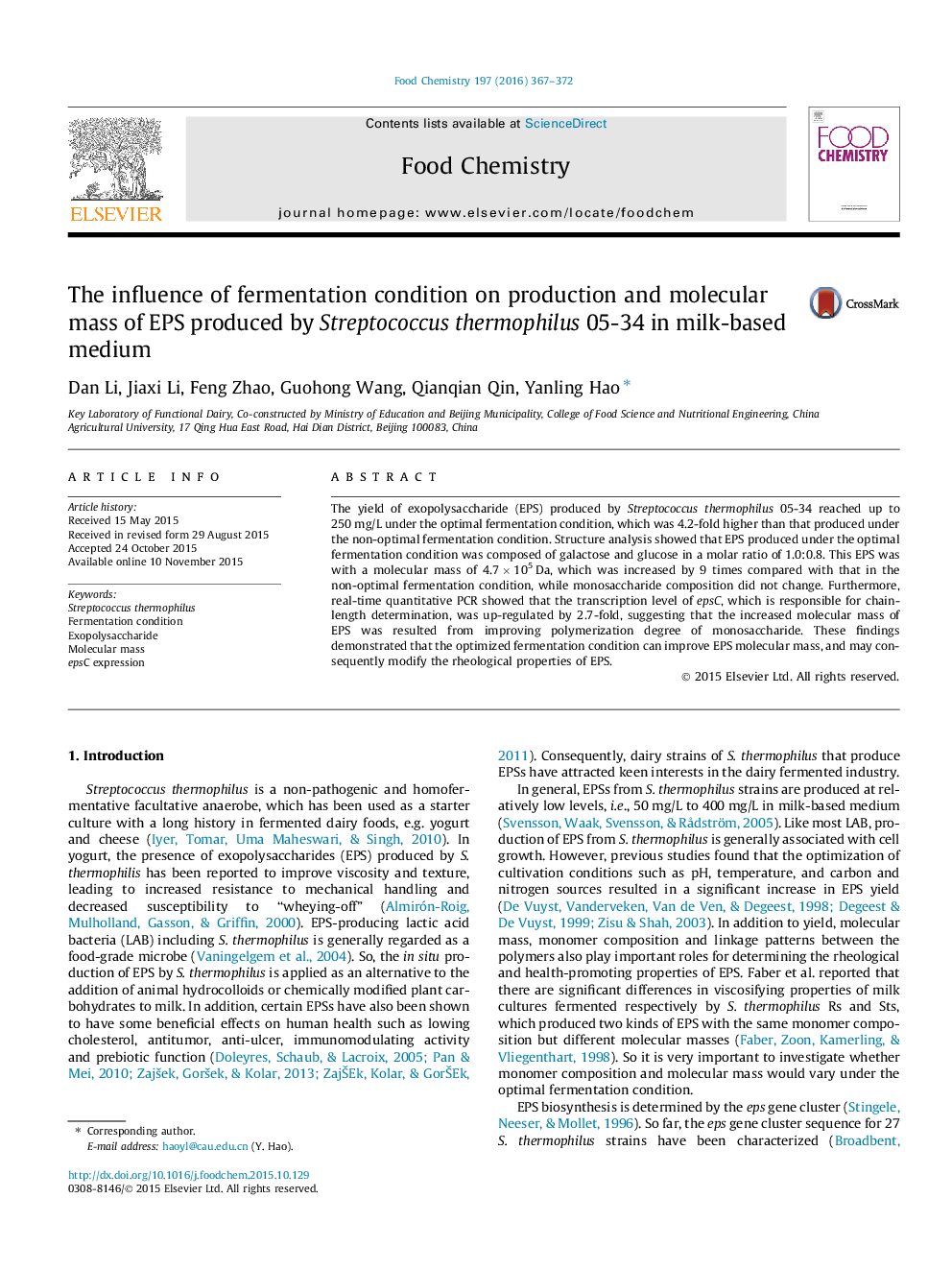| Article ID | Journal | Published Year | Pages | File Type |
|---|---|---|---|---|
| 1183477 | Food Chemistry | 2016 | 6 Pages |
•EPS production under the optimal condition was increased by 4.2 times.•Molecular mass was increased by 9 times under the optimal condition.•Compared with the non-optimal condition, monosaccharide composition did not change.•Up-regulation of length-chain control gene epsC increased the molecular mass of EPS.•The change of the EPS molecular mass may further modify the rheological properties.
The yield of exopolysaccharide (EPS) produced by Streptococcus thermophilus 05-34 reached up to 250 mg/L under the optimal fermentation condition, which was 4.2-fold higher than that produced under the non-optimal fermentation condition. Structure analysis showed that EPS produced under the optimal fermentation condition was composed of galactose and glucose in a molar ratio of 1.0:0.8. This EPS was with a molecular mass of 4.7 × 105 Da, which was increased by 9 times compared with that in the non-optimal fermentation condition, while monosaccharide composition did not change. Furthermore, real-time quantitative PCR showed that the transcription level of epsC, which is responsible for chain-length determination, was up-regulated by 2.7-fold, suggesting that the increased molecular mass of EPS was resulted from improving polymerization degree of monosaccharide. These findings demonstrated that the optimized fermentation condition can improve EPS molecular mass, and may consequently modify the rheological properties of EPS.
